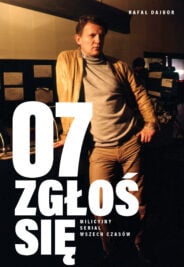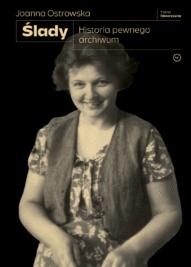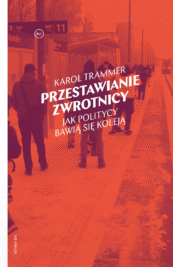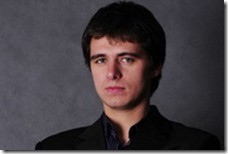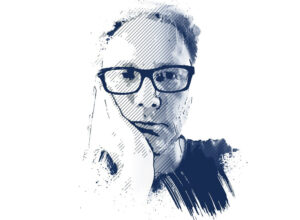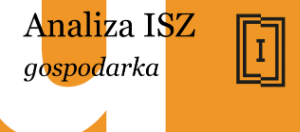Twój koszyk jest obecnie pusty!
prof. Ash Amin: Arts of the Political
Arabska Wiosna i ruchy Occupy wyrwały „polityczność” z objęć „polityki jaką znamy” – odgórnej, wpisanej w ustalone reguły, zamkniętej w horyzoncie teraźniejszości. Profesor Ash Amin, autor książki Arts of the Political pokazuje, jak lewica XXI wieku mogłaby wynaleźć się na nowo – stworzyć przekonujące wizje emancypacji, inspirować nowe tożsamości, wzbudzać emocje i pragnienia, przede wszystkim jednak budować organizacje przekładające roszczenia na polityczną praktykę – wzorem wielkich ruchów sprzed stulecia, od sufrażystek po związki zawodowe i socjaldemokrację.
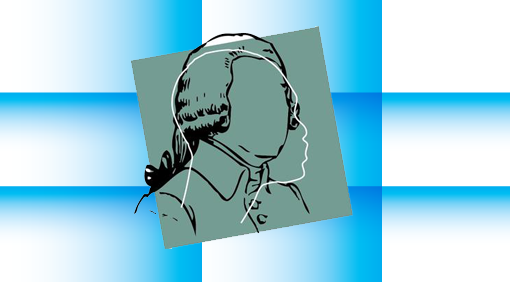
Sztuka polityczności
Globalne poruszenie ostatnich dwóch lat – od Arabskiej Wiosny do ruchów „occupy” – wyrwały polityczność, przestrzeń publicznych dysput, z objęć dotychczasowej polityki, określonych dotąd reguł działania. Z drugiej strony polityka jaką znamy – reprezentacyjna, odgórna, zrośnięta z ustalonymi procedurami, w dużej mierze skoncentrowana na teraźniejszości, a jeśli zorientowana w przyszłość, to apokaliptycznie – mówi nam o braku alternatywy, a o przyszłości jako „przeszłości, tylko bardziej”, z niewielką, ewentualnie, „inkluzywną” korektą. Profesor Ash Amin, współautor książki Arts of the Political twierdzi, że lewica musi dziś wynaleźć się na nowo, odzyskując zdolność tworzenia świata na nowo, która uczyniła tak wpływowymi ruchy z końca XIX i początków XX wieku. Niemiecka socjaldemokracja i związki zawodowe czy brytyjski ruch kobiecy fundamentalnie zmieniły rozumienie polityczności i jej podmioty, po pierwsze, projektując wiarygodne utopie i wizje wyzwolenia od wyrządzanych krzywd i niejawnych interesów; po drugie, wytwarzając emocjonalne pragnienia i dążenia dzięki nowym technikom reprezentacji, walki i tworzenia tożsamości; po trzecie wreszcie, zamieniając roszczenia w praktyczne uprawnienia dzięki skutecznej organizacji i instytucjonalizacji.
Dzisiejsza lewica powinna odbudować ten potencjał, wzmacniając ukryte bądź dopiero rodzące się żądania społecznej sprawiedliwości i przepracowując liczne eksperymenty społeczeństwa alternatywnego, jakie już istnieją. Nie brakuje dziś kontr-hegemonicznych, poza-mainstreamowych i postkapitalistycznych eksperymentów (by wymienić tylko podatek negatywny, dochód gwarantowany, kredyt społeczny, podatek Tobina, „zrównoważone miasta”, walkę z profilowaniem klientów w ubezpieczeniach i ochronie zdrowia) odpowiadających na pięć głównych wyzwań globalnych współczesności (fundamentalizm rynkowy, finansjalizację gospodarki, globalne nierówności, zmianę klimatu i kwestie bioetyczne). Eksperymenty te mogą i powinny stać się sprawą lewicy, skupiającej kwestie rozmaitych niesprawiedliwości i opresji pod jednym szyldem stale poszerzającej swój zasięg, transformującej społeczeństwo socjaldemokracji.
Dyskusję po wykładzie poprowadzi prof. Jerzy Hausner.
prof. Ash Amin – profesor Katedry Geografii Uniwersytetu Cambridge, stypendysta Christ’s College Uniwersytetu Oksfordzkiego. W swej pracy koncentrował się na problematyce geografii życia w nowoczesności: relacyjnego konstruowania miast i regionów; globalizacji jako procesu codzienności; gospodarki jako jednostki kulturowej; rasy i wielokulturowości jako hybrydy biopolityki i praktyk lokalnych. Był jednym z założycieli pisma „Review of International Political Economy”, jest (współ)autorem i (współ)redaktorem 19 książek, w tym Cities: Re-imagining the Urban (2002, wraz z N. Thriftem) oraz Arts of the Political (2013, również wraz z N. Thriftem).
Arts of the Political
The global uprisings of the last two years – from the Arab Spring to 'occupy’ movements – have wrested the political, the terrain of public dispute, from politics, the settled rules of conduct. On the other hand, politics as we know it – representative, top-down, wedded to fixed procedures, and largely presentist or if future-oriented then apocalyptic – speaks of no alternative, and of the future as more of the past, perhaps adjusted at the margins to be more inclusive. Professor Ash Amin, co-author of the Arts of the Political, claims that the organised left needs to thoroughly reinvent itself and regain the world-making qualities, which made the movements of the late 19th century so influent. German Social Democracy and trade unions or British women’s movement during the 1910s thoroughly changed the meaning of the political and its subjects by: (a) designing credible utopias and imaginaries of emancipation out of existing injuries and hidden interests; (b) building affective desire and surge through new technologies of representation, combat and identification; and (c) converting claims into practical gains through effective organisation and institutionalisation.
The left today should recover this capacity by amplifying latent and nascent demands for social justice and by working through the very many experiments of alternative society that already exist. There is no shortage of counter-hefemonic, non-mainstream and post-capitalist experimentation (to mention only a few: negative taxes and basic wage, socially enabling credit and money, Tobin’s tax, sustainable cities, anti-profiling in insurance and health care) responding to five major contemporary global challenges (concerning market fundamentalism, financialisation, global inequality, climate change, and bioethical questions). The left could make these experiments its cause, along with gathering diverse injustices and oppressions under the single umbrella of a continually expanding transformative social democracy.
prof. Ash Amin – Chair in Geography at University of Cambridge and Fellow of Christ’s College, Oxford University. Professor Amin is known for his work on the geographies of modern living: cities and regions as relationally constituted; globalisation as everyday process; the economy as cultural entity; race and multiculture as a hybrid of biopolitics and vernacular practices. He has been founding co-editor of the Review of International Political Economy, he has also (co) authored or (co) edited 19 books, including Cities: Re-imagining the Urban (2002, with N. Thrift) and Arts of the Political (2013, with N. Thrift).
Zapraszamy do wysłuchania nagrania audio i obejrzenia zapisu wideo ze spotkania.
Polecamy także rozmowę Michała Sutowskiego z prof. Aminem: Polityka skręciła w prawo.

 Wspieraj
Wspieraj 

 Wspieraj
Wspieraj  Wydawnictwo
Wydawnictwo 
 Zaloguj się
Zaloguj się 